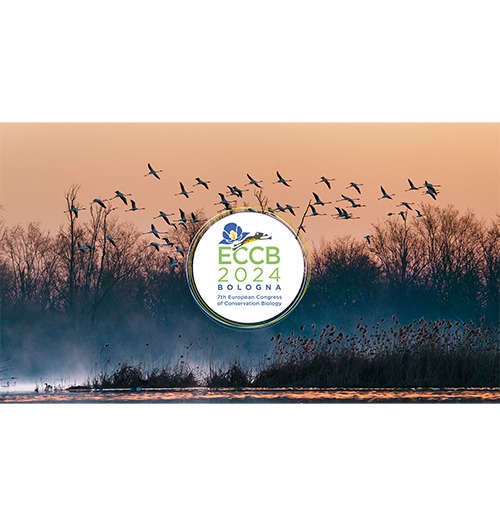7th European Congress of Conservation Biology
Home | Events | LifeWatch Italy | 7th European Congress of Conservation Biology

Bologna, Italy.
The European Congress of Conservation Biology (ECCB), organised by the Europe Section of the Society for Conservation Biology (SCB), aims to facilitate the exchange of conservation science and nature conservation practice and policy to promote the conservation of biological diversity in Europe.
The 7th ECCB will focus on achieving a biodiversity-positive status by 2030. This theme presents a positive message and a call to action towards conserving biodiversity. Despite the challenges, new protected areas were established, carbon emissions were reduced, and there is a growing awareness of biodiversity’s importance for survival.
This congress provides a platform for researchers, policymakers, and practitioners to share knowledge, exchange ideas, and collaborate toward achieving a sustainable future. By working together and taking action, we can make significant progress in conserving Earth’s biodiversity and achieving a positive biodiversity world by 2030.
To learn more, please visit the official website: https://eccb2024.eu/
Come and visit us!
If you want to discover or learn more about LifeWatch ERIC’s services to biodiversity researchers, you can find us at the 7th European Congress of Conservation Biology with our booth with gadgets and information material.
Can you spare a minute for us?
If you would like to help us improve our services, please complete our survey on research needs in conservation biology: https://forms.lifewatch.eu/virtualoffice433/form/Surveyonconversationbiologyresearchneeds/formperma/sMXw6ARj7G9LfvSyT2jxuGy0S45fTWkYgQmLb6dbU84